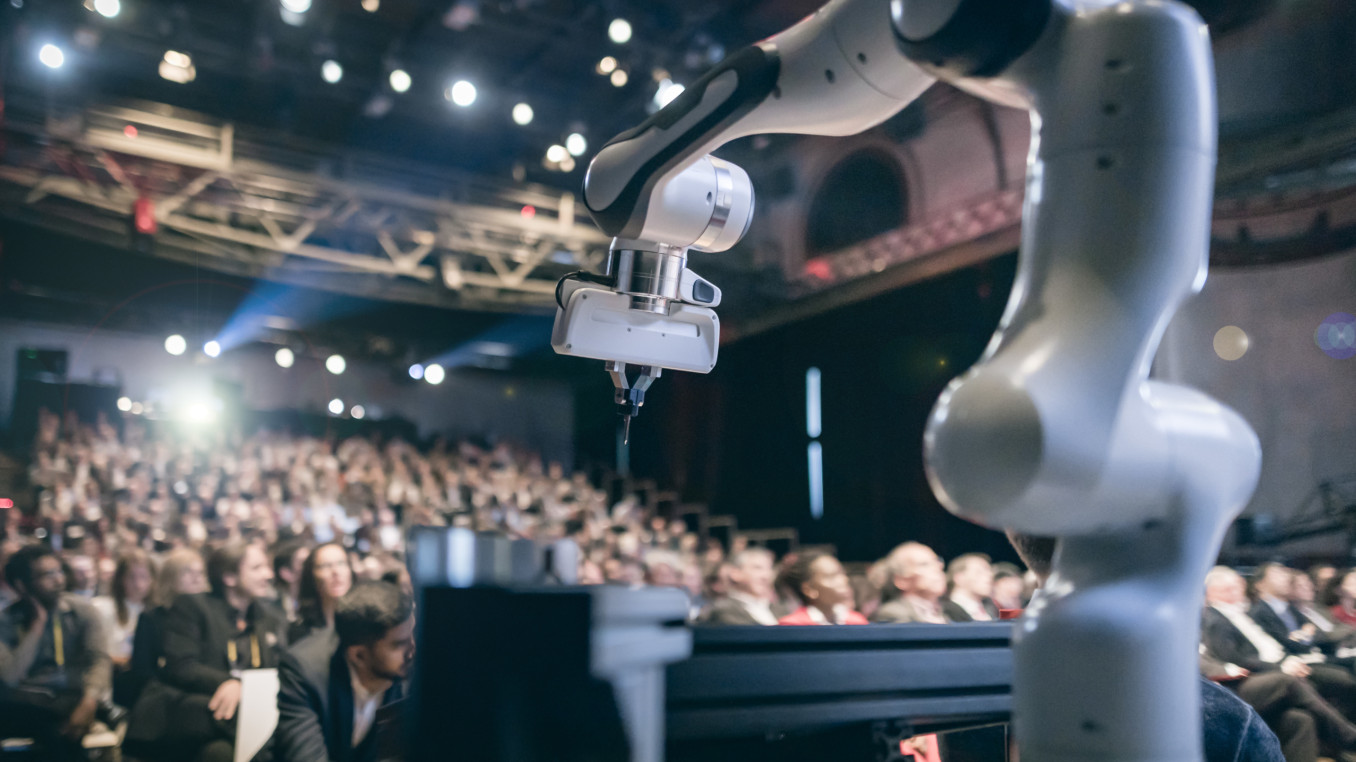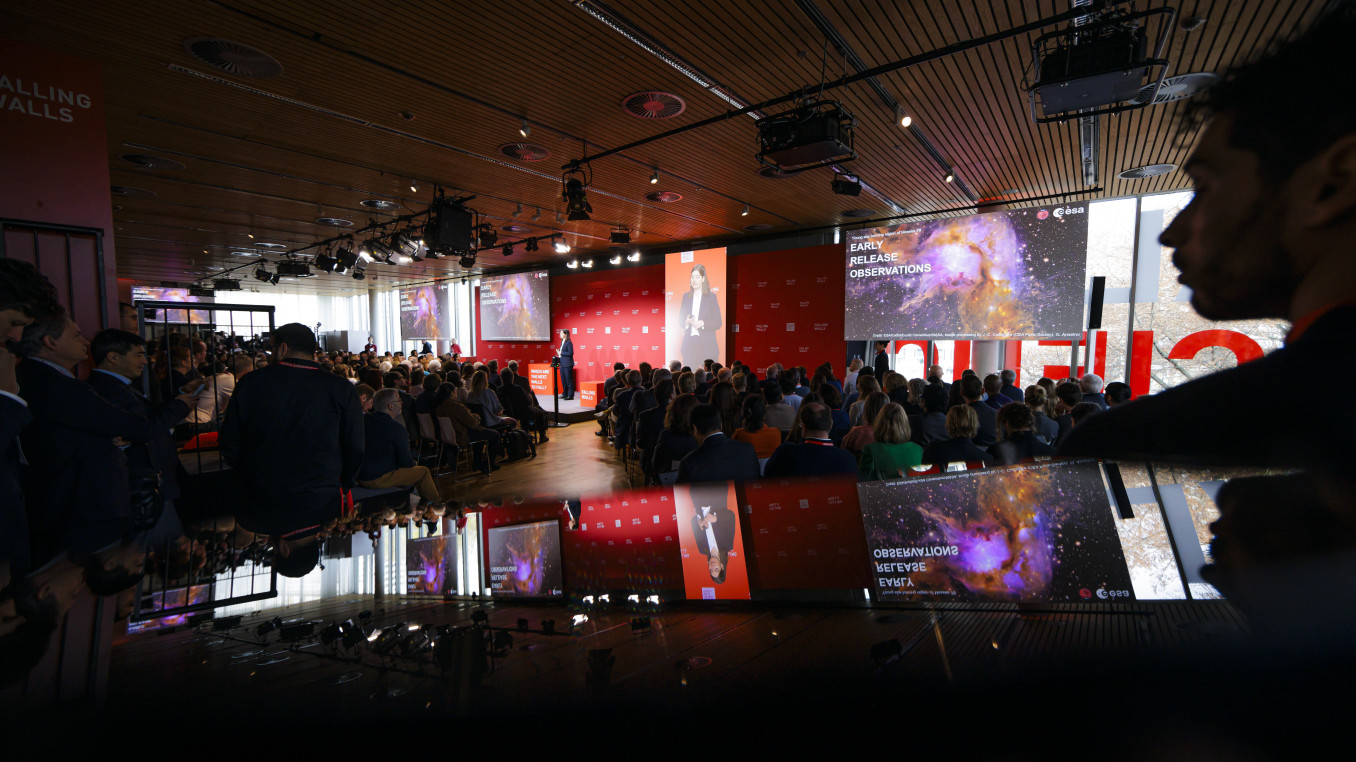Transforming Healthcare with Molecular Sensing: Andreas Güntner’s Nanotech Innovations
Breaking the Wall of Electronic Scent Detection
Winner Interview 2024: Engineering & Technology
Andreas Güntner is pioneering the integration of molecular sensing into electronic devices. His research on nanotechnology-based gas sensors enables non-invasive breath analysis for early disease detection, personalized treatment, and exposure warning. These advancements hold the potential to revolutionize healthcare, making critical health monitoring accessible and efficient.
Which wall does your research or project break?
Modern electronic devices (e.g. smartphones) are indispensable tools for billions of people. They interact with us through voice recognition, activity tracking, give us orientation, record videos and connect us by communication to the world. Surprisingly, chemical recognition is missing, despite the fact that our world is made of molecules. Also, we humans rely heavily on our senses of smell and taste. Equipped with molecular sensing, exciting new functionalities become possible to tackle some of humankind’s most pressing issues. For instance, portable gas sensors could play a pivotal role in the current transformation of healthcare from disease-reactive to predictive, preventive, personalized and participatory - the so-called “4P” – medicine.
By providing critical health data on demand through non-invasive breath analysis, diseases could be detected earlier and their therapies personalized to reduce mortality, improve patient’s recovery and impede skyrocketing healthcare costs. Such devices could even prevent severe diseases by warning us from the exposure to toxicants, allergens or even chemical warfare agents. Especially when combined or even integrated into wide-spread electronic devices with advanced communication skills, distributed and inter-connected chemical recognition is feasible as part of the Internet of Things. When inexpensive, such devices create also new opportunities for healthcare in low-income countries with scarce medical resources. Despite their great potential with a clear societal need, suitable gas sensors are hardly available yet.
What are the three main goals of your research or project?
Nanotechnology offers solutions by creating materials that convert chemical information into electrical or optical signals. Such nanoparticles can be integrated compactly on tiny chips or directly coated onto wearable patched. In order to accomplish this, our research addresses four interdisciplinary challenges:
Selective sensing - Tailoring interactions of molecules with nanostructured surfaces:
Exhaled breath and indoor air are complex gas mixtures containing hundreds of molecule types. Detecting relevant biomarkers or hazardous pollutants at extremely low concentrations (e.g., toxic formaldehyde at 1 in 1 billion other molecules) is challenging. Sensors must identify these low concentrations without interference from other substances. We address this by designing nanostructured surfaces with extremely high surface areas (1 gram of our nanoparticles has over 100 square meters of surface area), enabling the detection of smallest molecular traces. We enhance selectivity by tuning adsorption and reactivity to interact exclusively with target molecules.
Chip-level integration - Controlling performance across length scales:
Our sensing nanoparticles are typically smaller than 1 nanometer. By integrating them onto chips approximately 1 cm in size, we maintain their sensing performance across a scale range of seven orders of magnitude – this is similar to the ratio of a needle tip and the Earth's diameter. This is achieved by self-assembling the nanoparticles into micrometer-thin films on the chips. These films have high porosity (~98%), allowing molecules to easily access and interact with the nanoparticle surfaces.
Pain-free health monitoring with breath sensors:
Human breath is rich in physiological information and easily accessible. We develop handheld breath analyzers based on our sensors for continuous breath chemistry analysis. Collaborating with hospitals worldwide, we test prototypes in clinical trials focusing on cancer, obesity, liver and kidney function. For example, our sensors guide dietary interventions and detect diabetes-related abnormalities. In partnership with the European Space Agency, we are integrating our sensors into headsets and space suits to remotely monitor astronaut health. These innovations have resulted in multiple patents, commercialized by our spin-off Alivion AG, and have been recognized by several awards.
Providing robots the sense of smell:
Interfacing our sensors with robotic platforms, such as legged robots and drones, provides mobility. This enables source detection that paves the way for exciting possibilities, such as quickly locating trapped individuals after earthquakes or avalanches and detecting landmines in conflict areas without endangering human search teams.
What advice would you give to young scientists or students interested in pursuing a career in research, or to your younger self starting in science?
Pursuing a research career—whether in academia, start-ups, or established industries—is an exciting adventure. It involves exploring uncharted territories, innovating to address societal challenges, and experiencing the satisfaction of contributing to humanity's knowledge. My academic and entrepreneurial career has been driven by two main factors: an inexhaustible curiosity for finding and understanding simple solutions to challenging problems, and persistence and resilience, as scientific advancement and innovation are rarely straightforward and often result from constant learning from failure.
Given that science is constantly evolving, especially in fields like nanoscience and sensor development, it is crucial to stay open to new techniques, theories, and technologies, and to embrace unexpected directions. Building a network of mentors and collaborators is also vital, as it helps tackle problems more effectively. Ultimately, it's essential to have fun and enjoy the journey. Don’t forget to celebrate even small victories with your peers!
What inspired you to be in the profession you are today?
The opportunity to enter unchartered territory to address some of humanities most pressing challenges.
What impact does your research or project have on society?
By providing the sense of smell to electronic devices, we provide solutions for improved healthcare and reduced impact of environmental pollution.
What’s the most exciting moment you've experienced over the course of your research or project?
The pride of junior researchers when something works out against all odds (and sometimes even against my expectations or advice) is truly inspiring.


